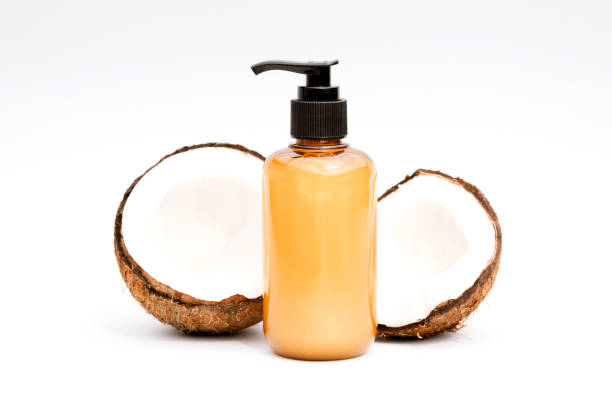Introduction
Sunscreen is a crucial component of skincare routines, offering protection against harmful UV rays. In recent years, coconut oil has gained attention as a natural alternative to commercial sunscreens. This article delves into the myths surrounding coconut oil as a sunscreen and explores its potential benefits.
II. Understanding Sunscreen and its Importance
Definition of Sunscreen Sunscreen is a topical product designed to protect the skin from the harmful effects of ultraviolet (UV) radiation, which can lead to sunburn, premature aging, and an increased risk of skin cancer.
Importance of Sunscreen Regular use of sunscreen helps safeguard the skin from the damaging effects of both UVA and UVB rays, promoting long-term skin health.
III. The Myth of Coconut Oil as a High SPF Sunscreen
Clarifying the Myth While coconut oil has natural SPF properties, it is not a substitute for conventional sunscreens. Its SPF is relatively low, offering minimal protection compared to dedicated sun protection products.
Understanding SPF in Coconut Oil Coconut oil has an estimated SPF of around 4-5, which is significantly lower than the recommended SPF of 30 or higher for adequate sun protection.
IV. Components of Coconut Oil and Their Effects
Fatty Acids and Antioxidants Coconut oil contain fatty acids and antioxidants, which contribute to its moisturizing and soothing properties. However, these components do not provide sufficient protection against UV rays.
V. Potential Benefits of Coconut Oil for After-Sun Care
Moisturizing Properties Coconut oil can be beneficial for soothing and moisturizing the skin after sun exposure, helping to alleviate dryness and peeling.
Anti-Inflammatory Effects The anti-inflammatory properties of coconut oil may aid in reducing redness and irritation associated with sunburn.
VI. Limitations and Considerations
Not a Comprehensive Sunscreen Coconut oil should not be solely relied upon for sun protection, especially during prolonged sun exposure or in regions with intense sunlight.
Reapplication Challenges Coconut oil may require more frequent reapplication than traditional sunscreens, making it less practical for extended outdoor activities.
VII. Choosing the Right Sunscreen for Optimal Protection
SPF Guidelines Selecting a sunscreen with a minimum SPF of 30 and broad-spectrum protection ensures comprehensive coverage against UVA and UVB rays.
Water-Resistant Formulas For activities involving water or excessive sweating, opt for water-resistant sunscreens to maintain effectiveness.
VIII. DIY Sunscreen Risks and Concerns
Unreliable SPF Levels Creating DIY sunscreens, including those with coconut oil, may result in erratic SPF levels, compromising sun protection.
Potential Skin Sensitivities Individuals with sensitive skin or allergies may experience adverse reactions to DIY sunscreens, emphasizing the importance of tested and regulated products.
IX. Conclusion: Balancing Natural Remedies and Modern Sun Protection
While coconut oil offers certain benefits for the skin, relying on it as the sole source of sun protection is not advisable. For optimal skin health, it’s crucial to incorporate dedicated sunscreens with appropriate SPF levels into your routine. Embracing a balanced approach that combines natural remedies like coconut oil for after-sun care with modern sun protection ensures comprehensive skin care.

